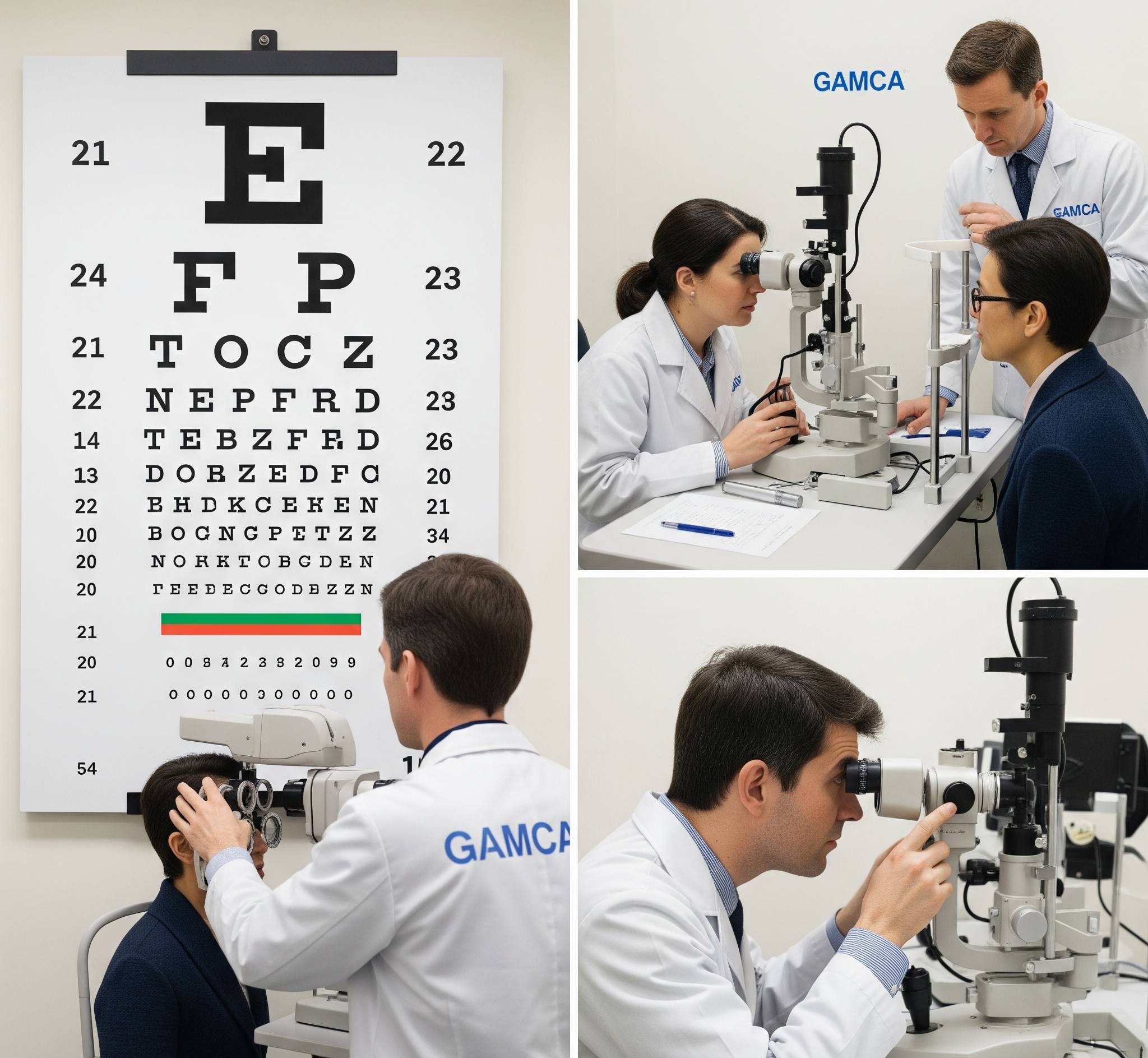
As part of the mandatory GAMCA medical test for those planning to work or live in GCC countries, a vision and eye health check is usually included. This screening helps confirm that your eyesight meets the requirements for your intended job and that you don’t have any serious or contagious eye conditions.
Here’s what typically happens during the eye examination:
1. Visual Acuity Test (Using a Snellen Chart):
You’ll be asked to read letters or numbers from a chart placed at a distance to determine how clear your vision is. If you wear glasses or contact lenses, the test is done both with and without them—so be sure to bring them along, along with your prescription if you have it.
Jobs like driving or roles requiring sharp visual attention often have stricter requirements, typically needing 6/6 or 6/9 vision, even with corrective lenses.
2. Color Vision Test:
You may be shown Ishihara plates—images made up of colored dots forming numbers—to check your ability to distinguish colors. This test is especially important for jobs where recognizing colors is essential, such as electricians or pilots.
3. Peripheral Vision Check:
In some cases, a quick check of your side (peripheral) vision is done to ensure your field of view is within normal range.
4. Eye Disease Screening:
The doctor will look for visible signs of eye infections or serious conditions. These might include contagious diseases like conjunctivitis or more complex problems like cataracts or glaucoma. Such issues, if found to be severe or requiring long-term treatment, may affect your fitness status for the medical test.
Conditions That Could Lead to Disqualification:
The exact standards can vary depending on the country and the nature of the job, but some eye issues that may result in an “unfit” report include:
-
Contagious eye infections like trachoma or purulent conjunctivitis
-
Serious conditions like cataracts or glaucoma that need extended treatment or surgery
-
Significant vision loss, especially if vision can’t be corrected to meet job standards
-
Progressive genetic disorders affecting vision (like retinitis pigmentosa)
-
Retinal issues, including bleeding or retinal detachment
-
Nerve-related problems like optic neuritis or optic atrophy
-
Central serous retinopathy
-
Color blindness, if color recognition is essential for the job
If you already have vision-related concerns or use glasses/contact lenses, it’s a good idea to inform the medical center in advance and carry relevant documents or prescriptions with you. This can help ensure your test goes smoothly and accurately reflects your current health condition.



